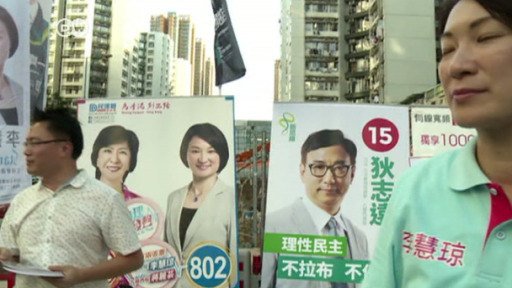Hong Kong is voting in the first major elections since pro-democracy protests in 2014.
Voters will choose 35 lawmakers based on geographical constituencies and 35 people to represent selected trades.
Hong Kong has partial democracy and not everybody can vote for all the seats. Thirty seats are decided by a pool of just 6% of the population.
Polls opened at 07:30 local time and are due to close 15 hours later.
The vote does not elect the Chief Executive, who is the head of government, but many analysts believe the outcome of today’s vote could have an impact on whether China grants current leader CY Leung a second term in office.

For two months in 2014 protesters demanded his resignation as the Occupy movement occupied major parts of Hong Kong and caused political upheaval while calling for the right to elect a leader directly.
Three main groups compete in September 4 elections: pro-Beijing parties including pro-business parties; traditional pro-democracy parties known as pan-democrats and localists, who want democracy but think there should be more confrontation with the government – some think Hong Kong should have more autonomy, while some advocate full independence.
The seats are in the Legislative Council, which passes laws and budgets in the territory.
There are 30 so-called functional constituencies which represent various professional and commercial groups, such as insurance, catering or education. These are voted in by company representatives in their industries.
Anyone without a functional constituency vote can vote for the final five seats.
The system means that although Hong Kong has 3.7 million voters, 30 of the seats in the Legislative Council are determined by a pool of just 239,724 people.
